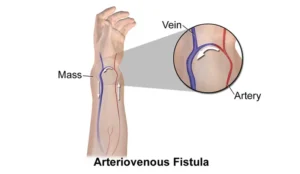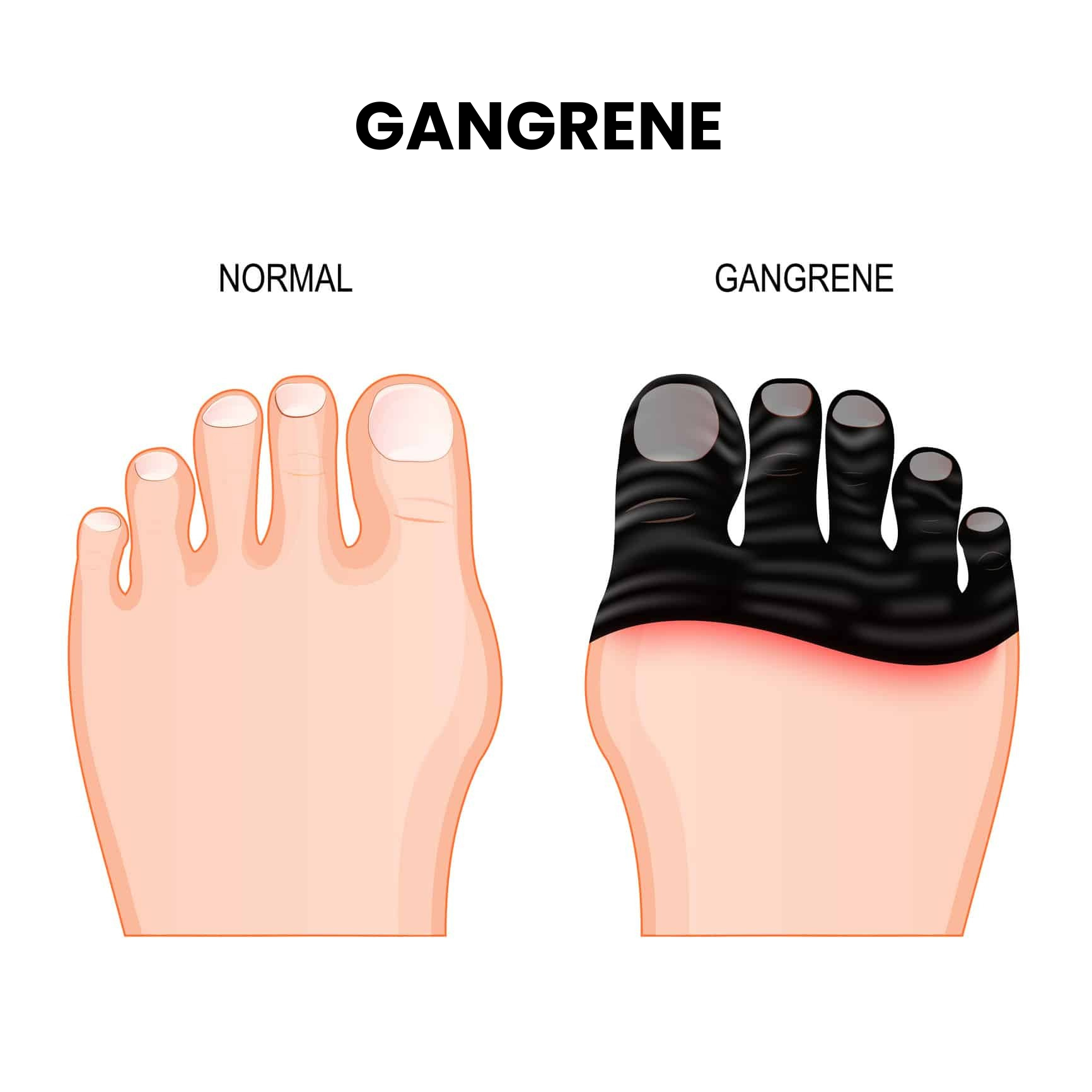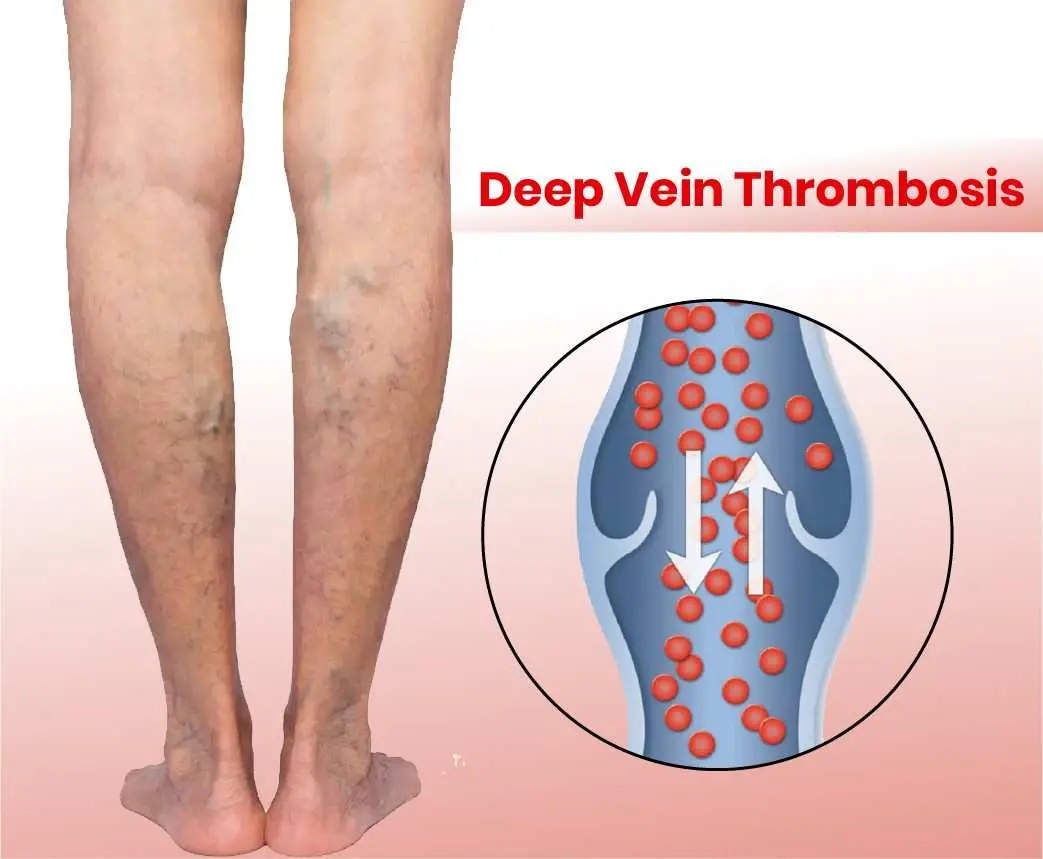AV Fistula Problems: What You Need to Know About Dialysis Access

When your kidneys are not functioning well, it may be time to consider dialysis to maintain your health. Doctors develop what is known as an AV fistula to obtain dialysis. It is a special line on your arm that will aid you in your dialysis treatment. Understanding av fistula complications is important for all dialysis patients.
What is an AV Fistula?
AV fistula refers to a condition in which a physician has surgically attached an artery, a blood vessel, to another blood vessel, known as a vein. They accomplish this in your arm. The factors that lead to the development of an av fistula causes when individuals who have kidney disease require dialysis. By doing so, this connection facilitates the cleaning of your blood by the dialysis machine.
How Do Doctors Make an AV Fistula?
The AV fistula procedure steps are pretty simple. First, the doctor gives you medication to help alleviate your pain. Then they make a small cut in your arm. The AV fistula procedure takes about 1-2 hours.
During AV fistula creation, the doctor carefully connects your artery to your vein. This lets blood flow from the artery into the vein. Over time, this makes the vein bigger and stronger. The AV fistula surgery for dialysis is usually done at the hospital, and you can go home the same day.
The AV fistula surgery needs to be done just right. A good connection ensures your dialysis will work more effectively for many years.
Problems That Can Happen with AV Fistulas
AV fistula creation is generally safe, but complications may occur in some cases. Learning about AV fistula complications and treatment enables you to find assistance when it is required.
Blood Clots
Sometimes blood clots can block your fistula. This can happen if your blood pressure gets too low or you don’t drink enough water. Doctors can remove these clots with special procedures or surgery.
Getting Narrow
Your fistula might get too narrow over time. This means less blood can flow through it. Doctors can correct this by inflating a tiny balloon or performing a minor surgical procedure.
Infections
You may develop an infection when germs enter your fistula. This is not a very common occasion, but it is instructive to keep your fistula clean. Doctors will use medicine to kill germs when you acquire an infection.
Weak Spots
When nurses put needles in your fistula for dialysis many times, it can create weak spots. These spots might get bigger like a balloon. If this happens, you might need surgery to fix it.
Not Enough Blood to Your Hand
Sometimes your causes of av fistula takes too much blood away from your hand. This can cause your fingers to feel cold, numb, or painful. Doctors can correct this by modifying the function of your fistula.
Not Growing Right
Sometimes the fistula doesn’t get big and strong enough for dialysis. If this happens, you may need another procedure to improve its effectiveness.
How to Take Care of Your AV Fistula
Good AV fistula care helps keep your fistula functioning well and prevents potential problems. Here’s what you need to know about how to care for av fistula:
Every Day Care
- Wash your fistula area with soap and water every day
- Keep it clean and dry
- Look for red, hot, or swollen areas that might mean infection
- Feel for the buzzing feeling that shows blood is flowing well
Things to Avoid
- Don’t wear tight clothes or jewellery on your fistula arm
- Don’t sleep on your fistula arm
- Don’t let anyone take your blood pressure on your fistula arm
- Be careful not to hurt your fistula arm

Exercise Your Arm
Doing simple exercises helps your fistula grow strong. You
can squeeze a soft ball or do gentle arm movements. Your doctor will recommend exercises tailored to your specific needs.
When to Call Your Doctor
Call your doctor right away if:
- You can’t feel the buzzing in your fistula
- Your fistula area looks red, feels hot, or hurts more than usual
- Your arm or hand swells up a lot
- Your hand feels very cold or numb
Stopping Problems Before They Start
The best way to deal with av fistula complications is to stop them from happening. The doctors use special tests before your surgery to determine the best location to create a fistula in you. Post-surgery, regular check-ups help in the early detection of any problems.
Your dialysis nurses, kidney doctor, and surgeon are a team to maintain your fistula in prime condition. They may perform special tests using sound waves to ensure that everything is going in the right direction.
Getting the Best Care
In Ludhiana, we enable accessibility for people requiring dialysis. We carefully plan the surgery and are highly skilled in conducting the operation, regularly checking on you to minimise complications.
The difference is that you need to know what may go wrong with your fistula and what should be done in this situation. With good fistula care, most individuals can utilise them to carry on their dialysis over many years.
Waiting to see whether things will be okay or not with regards to your fistula is not a good idea. Solving the little problems earlier will prevent the great ones and this will be achieved by arresting them too in advance. This way you will be in a position to undergo dialysis treatment that you might have to sustain your good health and well being.
Visit in Ludhiana for expert AV fistula treatment that is both advanced and tailored to your needs. He uses modern, less invasive methods and treats each patient with care and attention.



